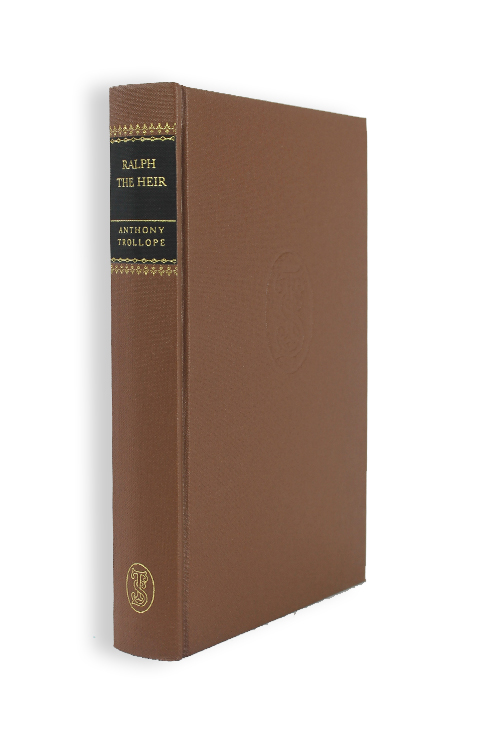Ralph The Heir
The Trollope Society Edition Clearance Sale is only available in the UK.
Original price was: £35.00.£5.00Current price is: £5.00.
Clearance Sale UK only
Coupons are not valid with this offer
Available to members only
Introduction by John Letts
502 pages
London, Hurst and Blackett, 1871. 3v.
Originally published in Saint Paul’s Magazine, Supplement, Jan. 1870- July 1871.
Trollope displayed his usual obtuseness with regard to his own work when he commented on Ralph the Heir. He declared: ‘I have always thought it to be one of the worst novels I have written’. He is quite wrong, of course, and the public, as always, disagreed with him.
Ignoring the author’s disenchantment with the book, Ralph the Heir is in fact a very moving and rather touching love story, the twist here being that it is a depiction of a love story between father and son. Newton Priory, in Hampshire, is occupied by Squire Gregory Newton, yet entailed to his nephew Ralph, because the Squire’s own son (confusingly also called Ralph) is illegitimate. Successive attempts are made to allow the illegitimate Ralph to inherit the estate, and rivalry grows between the two cousins for the hand of a beautiful woman.
Ralph, the nephew, is feckless and weak where his cousin is steadier and more honest; his weakness leads him into grave debt, and in an effort to solve his mounting financial problem, he unwisely and ultimately unsuccessfully seeks the hand of Polly Neefit, the daughter of one of his creditors. In ever-desperate attempts to settle his debts, Ralph the heir tries to negotiate the sale of the entail on the Newton Priory estate back to Squire Gregory, but the squire is killed in a riding accident before the transaction can be completed. The illegitimate Ralph can no longer hope to inherit the title, but has the consolation of the beautiful Mary Bonner, as his bride.
So far, so Trollopian. The true depth and power of the book is, unusually, revealed within the subplots of the book: the love between the illegitimate Ralph and his father, surely an autobiographical nod by the author in the direction of his own feelings towards his son; and particularly the story involving the gloomy, pessimistic Sir Thomas Underwood, Mary Bonner’s guardian, who contests the election at Percycross. Trollope finally got his own failure at the Beverley by-election completely off his chest, acknowledging that ‘Percycross and Beverley were, of course, one and the same place’. Trollope (who should probably never have contested the Beverley by-election in the first place), shows us that Sir Thomas rapidly becomes disenchanted with political life, finding that it has little to do with helping his constituents.
The author had not quite got Beverley out of his system, however. He returned to electioneering in The Duke’s Children in the ‘Palliser Series’. There he called it ‘squalid’ and revolting’, but conceded ‘To go through it and then not to become a member is base indeed!’
